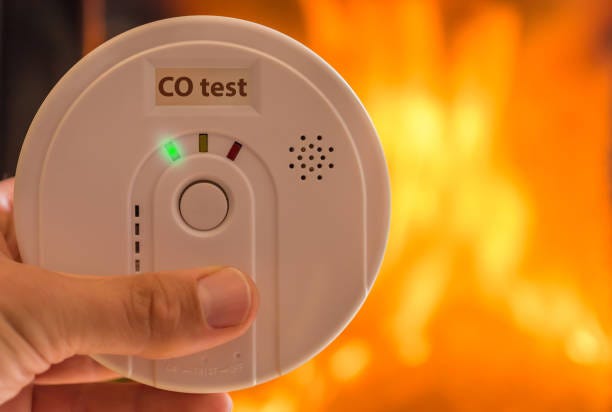
Buffalo, N.Y. (WBEN) - Following this week's scare at the Holiday Twin Rinks in Cheektowaga that caused an evacuation resulting from faulty equipment leaking dangerous levels of carbon monoxide, some people may have growing concerns about the dangers of the colorless, odorless gas.
"Carbon monoxide is something that's produced typically after combustion. [For example,] a fire, or a furnace, or a hot water tank, or a generator, a gas powered generator," explains University at Buffalo Professor of Emergency Medicine Dr. Joshua Lynch. "This is a odorless, colorless gas. We worry especially when that builds up in confined spaces like garage, or a home or another building for that matter."
What are the typical causes of carbon monoxide exposure?
"Typically, it's from a faulty appliance, such as a furnace," said Dr. Lynch.
"What we worry about, particularly in the wintertime with power outages is using a generator in a garage or near an open window. Those should be operated outdoors all the time. These will produce carbon monoxide and if it's not in a well ventilated area like outdoors, then that's when the concentrations of carbon monoxide can build up and cause problems."
Although carbon monoxide is hard to detect as it is colorless and odorless, there are some symptoms that can be used to potentially identify, such as sudden headache, weakness, dizziness, nausea or vomiting, shortness of breath, confusion, blurred vision, drowsiness, loss of muscle control or loss of consciousness.
Long term effects include memory loss, extreme personality changes and problems in mobility.
Make sure you exercise great caution when operating gas appliances and be sure to have adequate carbon monoxide detectors installed in your home and business.
"Carbon monoxide detectors are a great start and again, really should be in everyone's homes and businesses. Using care when having an appliance installed, especially a gas appliance like a furnace, hot water tank or gas range, having that done by a professional is always recommended. As we head into the the winter months, using a generator when the power goes out a portable generator, those should always be kept outdoors and never run in the garage. Never run indoors, at all. Additionally, gas stoves or ovens should never be used to heat the home in the event of a power outage," noted Dr. Lynch.
The Holiday Twin Rinks in Cheektowaga is remaining closed through 1/1/2024 as they continue to monitor their equipment.

